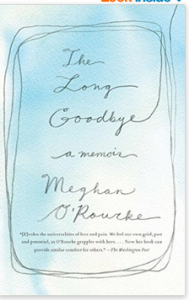 Grief and grieving: in life and death
Grief and grieving: in life and death
For each of us, our Book of Life has many chapters on grief and grieving, covering a broad spectrum: I can still conjure the pang of loss when my youngest went to Kindergarten; the sense of betrayal caused by the end of a friendship, and seeing neighbourhoods change or vanish. I’ve grieved them all.
We each grieve differently (I’m always taken aback by those who judge based on lack of ‘expected’ signs of grief) and we each grieve different things: One 30 year old grieves her thick auburn hair turning gray, while a 65-year old grieves her 40-year old son going bald.
When it comes to aging and illness I am learning – although not necessarily articulated as such – we grieve losses along the way: Roberta, 70, grieves arthritic knees that prevent her running – an activity that calmed her brain while keeping her fit.
Then, there’s the grief and grieving that comes with end of life and death – warranting separate chapters in our Book of Life.
That grief is so specific that Meghan O’Rourke, in her book The Long Goodbye – written after her mother’s death, quotes Iris Murdoch:
“The bereaved cannot talk to the un-bereaved.”
It’s true that many of us are uncomfortable, uneasy and untrained in response to grief of any kind. However, for a death, there are long- practiced traditions and rituals in our respective cultures that have served as time-honoured comfort for those benumbed including our communities cocooning the bereaved. In some societies, there is no recovery from the grief brought on by death.
Yet, in this modern, get-ahead world of ours, I fear for those soul nurturing traditions. In this environment of sound bites and IMs there is an impatience with prolonged sadness, inability to cope, inability to get on with life. It seems no longer acceptable to give grief a chance.
Joan Didion, in The Year of Magical Thinking, quotes social anthropologist Geoffrey Gorer’s 1965 Death, Grief and Mourning. He described the rejection of public mourning as a result of the increasing pressure of a new “ethical duty to enjoy oneself.”
Unschooled in what the grief-stricken need, Didion turns to Emily Post’s 1922 book of etiquette, Chapter XXIV< Funerals:
“Those who are in great distress want no food, but if it is handed to them, they will mechanically take it, and something warm to start digestion and stimulate impaired circulation is what they most need.”
We would do well to reflect on what history has shown: you can’t hurry grief. And for those of us who support grievers, we should take heed of Emily Post’s long-ago direction on condolences and what not to say:
- “It is God’s will”
- “God does not give us more than we can bear”
- “I know just how you feel”
- “Did he have life insurance?”
©Kathy Kastner
